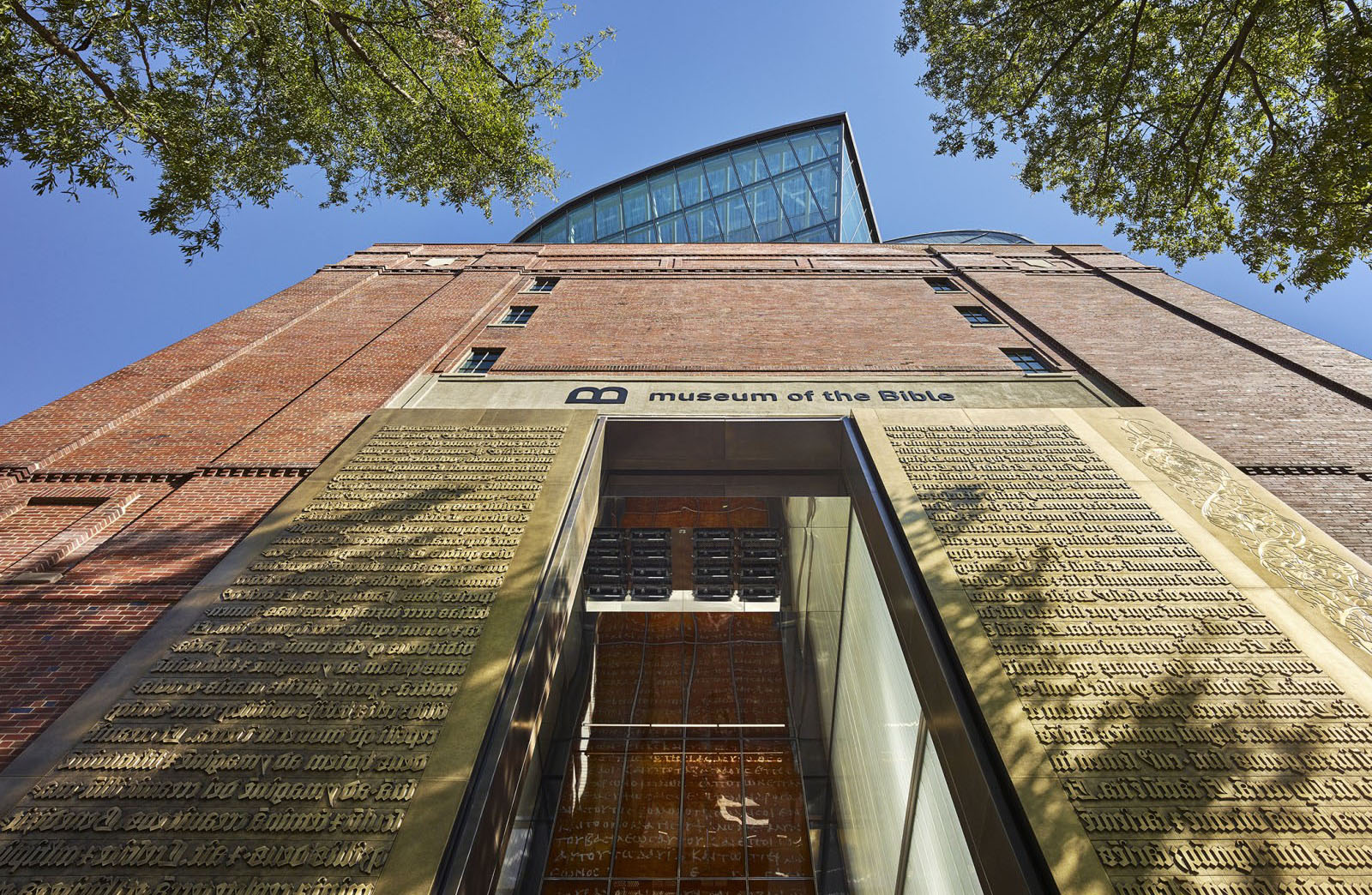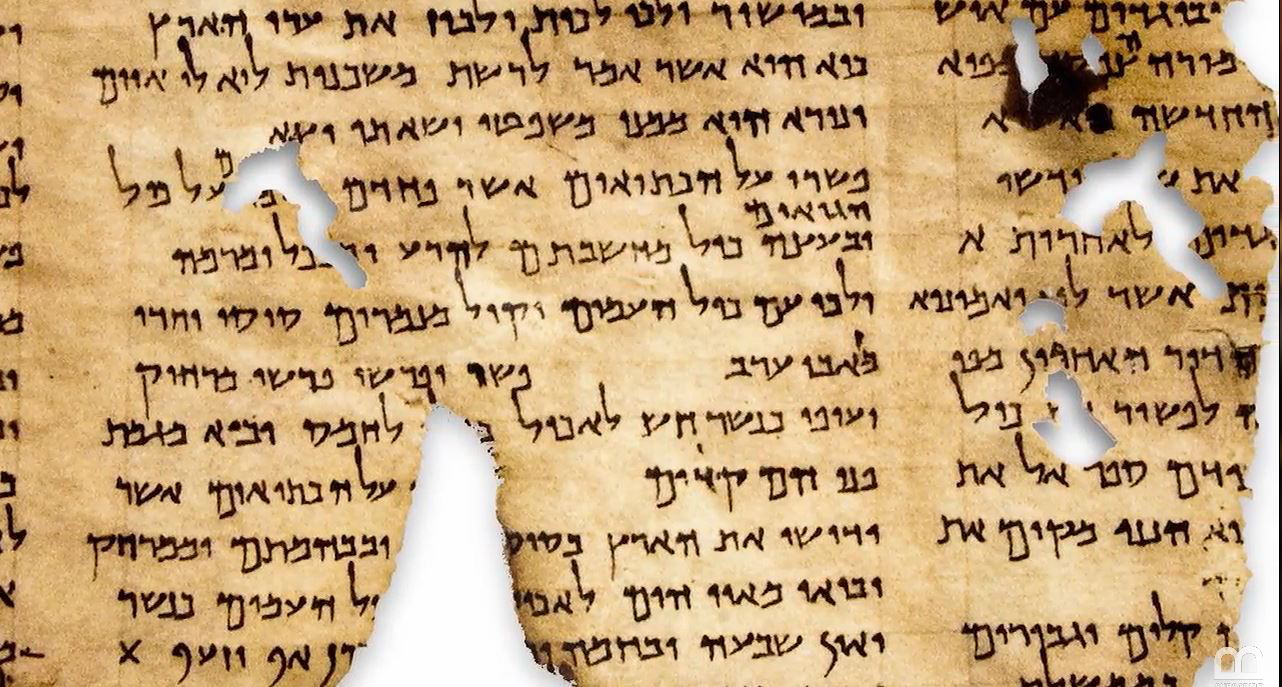
WASHINGTON (BP) — Five pieces of papyri passed off as fragments of Dead Sea Scrolls have been discovered as fake and removed from display at the Museum of the Bible (MOTB) in Washington.
 The museum founded by Hobby Lobby President Steve Green and family announced the discovery Oct. 22. The findings are based on a battery of tests MOTB commissioned months before the items were first displayed in 2017, MOTB said.
The museum founded by Hobby Lobby President Steve Green and family announced the discovery Oct. 22. The findings are based on a battery of tests MOTB commissioned months before the items were first displayed in 2017, MOTB said.
Many scholars viewed the papyri with suspicion well before the discovery, biblical archaeology professor Daniel Warner told Baptist Press today (Oct. 24).
The fragments “were suspect for some time,” said Warner, associate professor of Old Testament and archaeology at New Orleans Baptist Theological Seminary, and director of the seminary’s Center for Archaeological Research. “If you’re going to be the buyer, you should have it authenticated. I’m not sure of the process (MOTB) went through to have it authenticated.
“Apparently they got duped.”
Warner praised MOTB’s honesty in revealing the fakes. He noted that these types of phony artifacts can be sold for millions. Money is often the lone motivator in selling such fakes that are rarely a threat to the accuracy of Scriptural texts, Warners said.
Dead Sea Scrolls, first discovered in 1947 by Bedouin shepherds, are believed to have been buried in caves in Qumran along the Dead Sea for 2000 years, predating the earliest Scriptural manuscripts previously available. Only a few scrolls were found in tact; other specimens were only fragments.
 Authentic fragments, while rare, can help scholars and Christians understand the process of preservation, Warner said.
Authentic fragments, while rare, can help scholars and Christians understand the process of preservation, Warner said.
Perhaps 70 forged fragments have been marketed since 2002, many scholars believe, CNN reported Oct. 22.
In announcing the error, the museum defended its commitment to accuracy, authenticity and transparency.
“Though we had hoped the testing would render different results, this is an opportunity to educate the public on the importance of verifying the authenticity of rare biblical artifacts, the elaborate testing process undertaken and our commitment to transparency,” MOTB chief curatorial officer Jeffrey Kloha said in an MOTB press release. “As an educational institution entrusted with cultural heritage, the museum upholds and adheres to all museum and ethical guidelines on collection care, research and display.”
The museum sent the fragments in April 2017 to the German-based Bundesanstalt für Materialforschung und -prüfung (Federal Institute for Material Research and Testing) for examination, and was awaiting results when the fragments were added to MOTB displays upon the museum’s 2017 opening.
The fake fragments “show characteristics inconsistent with ancient origin,” researchers found. The revelation also discredits at least two other fragments the museum purchased in the same batch, museum spokesperson Heather Cirmo told the New York Times.
MOTB has funded two other studies of its collection of fragments. In a research paper published in 2016, editors and contributors questioned the fragments’ authenticity, MOTB said. Kipp Davis, an editor from Trinity Western University, conducted additional research.
“My research has focused primarily on two aspects of Museum of the Bible’s fragments: scribal quality and technique in the penning of the texts as well as the physical composition and current state of the manuscript media,” MOTB quoted Davis in the press release.
“My studies to date have managed to confirm upon a preponderance of different streams of evidence the high probability that at least seven fragments in the museum’s Dead Sea Scrolls collection are modern forgeries,” Davis said, “but conclusions on the status of the remaining fragments are still forthcoming.”
The U.S. Department of Justice (DOJ) has investigated the Green family for its purchasing practices. In 2017, the DOJ fined the Greens $3 million and forced it to forfeit thousands of improperly acquired ancient biblical artifacts, including Assyrian and Babylonian cuneiform tablets, bricks and clay bullae used in ancient writings and seals. None of those items were included in the museum’s collections, the Greens have said.
The $500 million museum bills itself as “an innovative, global, educational institution whose purpose is to invite all people to engage with the history, narrative and impact of the Bible.”













